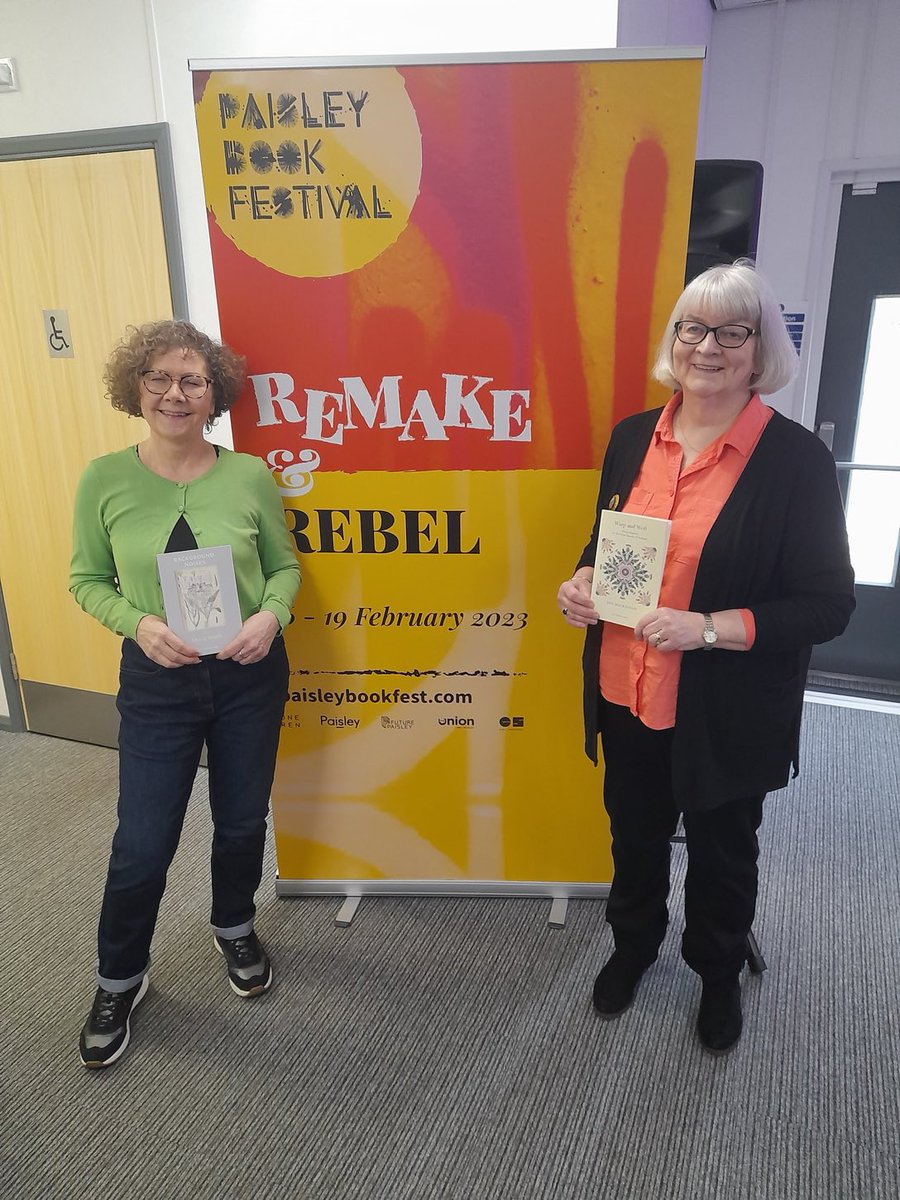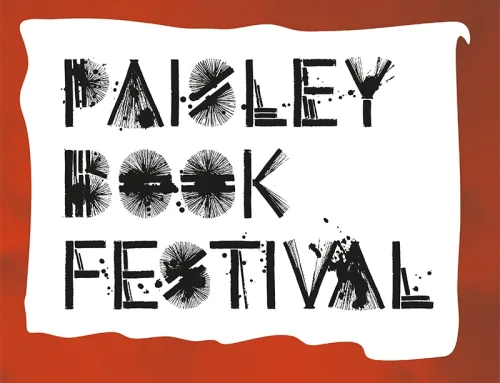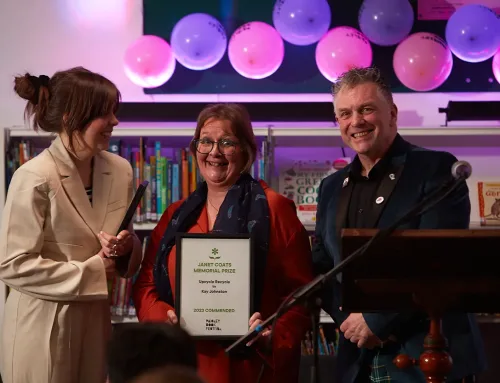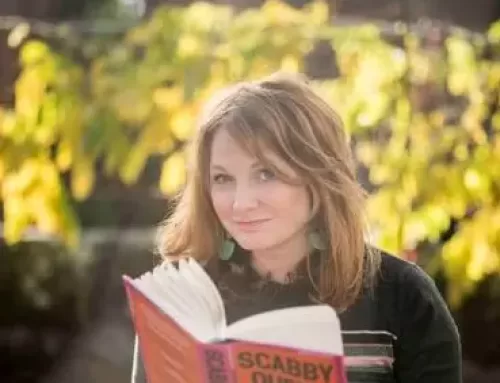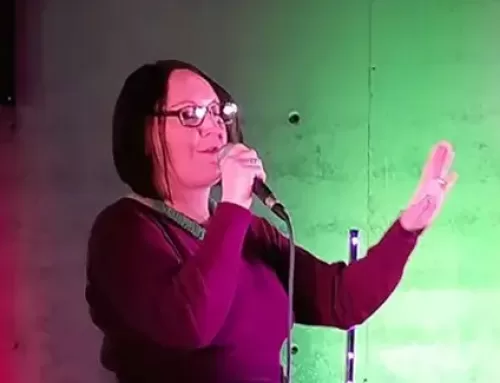Rewind, Rewild and Rebel with Red Squirrel Press – Morag Smith, Ann McKinnon
These multi award winning writers read from their recent poetry pamphlets Warp and Weft and Background Noises at a well-attended Paisley Central Library. They began by discussing the inspiration for their works, both of which were written during lockdown.
Ann had an interest in the Tapestry of Scotland, and in particular its portrayal of the lives of women. Morag’s Background Noises was inspired by her lockdown walks through the grounds of the nearby Dykebar Hospital. The now-derelict buildings inspired her to research the history of what was once regarded as being an innovative psychiatric institution, a project that allowed her to uncover hidden stories in the form of personal, first-hand accounts of its former patients.
Ann reads from her recent anthology, Warp and Weft. The Surge of the Sea, the first poem in the pamphlet, was inspired by the image of a woman emerging from the ocean, which Ann associated with the resurgence of the Gaelic language. Ann’s poetry weaves together English, Scots and Gaelic in a way that reminds the listener of the very tapestry which inspired the work being read. One of the motivations for her use of Scots emerges from the attempts, by Robert Burns’ publishers, to dissuade him from writing in what they claimed to be a limited and limiting literary language. Ann convincingly destroyed this myth with devastating effect.
Morag read some poems from Background Noises. Hazelwood Villa 20, is inspired by Morag’s fascination with derelict buildings and the explosion of wildlife that springs from their destitution. The second poem, Villa 22 was delicately laced with quotes from psychiatric patients that Morag had uncovered in her research.
Morag finishes her reading with the title poem of the pamphlet, Background Noises, work that was intimately connected to the histories of the lost and forgotten lives of those who had inhabited, long term and short, the old Hospital whose grounds she explored and spent time listening.
This event is testimony to one of the core strengths of the Paisley Book Festival, namely its on-going dedication to the work of local writers and poets. These sessions, always well attended, serve as a reminder not only of Paisley’s rich literary history, but of its continued vibrancy and resilience.
Another very successful festival event! Three cheers for Morag and Ann, and Red Squirrel Press who published their respective pamphlets.
